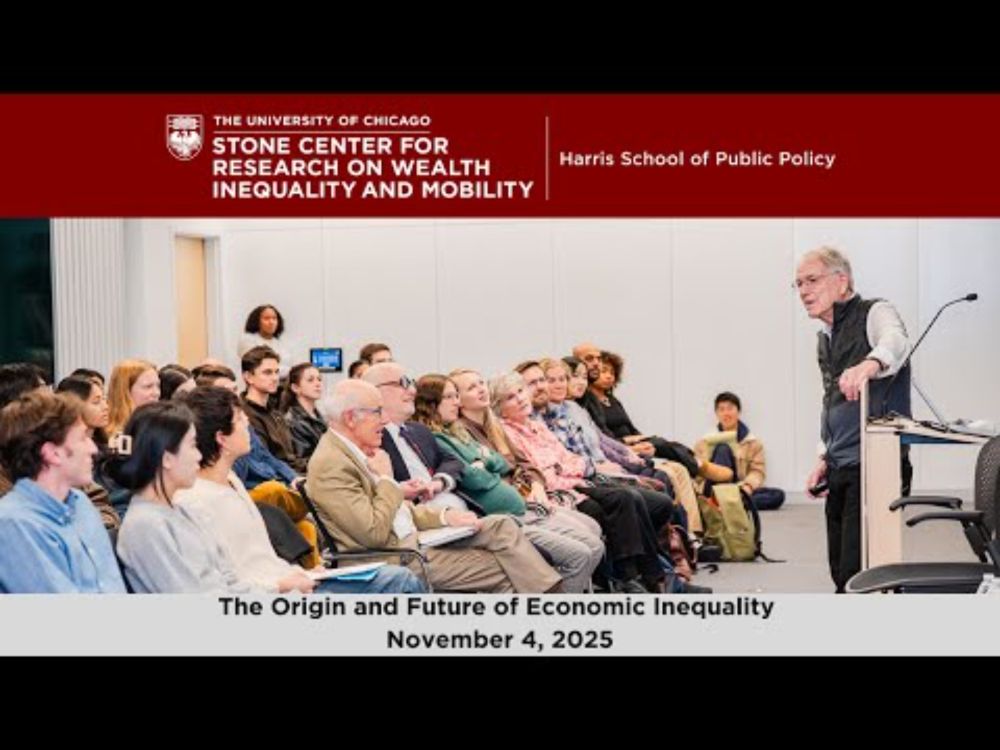Professor, Harris School of Public Policy, Director, Stone Center for Research on Wealth Inequality and Mobility, University of Chicago
Steven Neil Durlauf is an American economist and social scientist. He is currently Frank P. Hixon Distinguished Service Professor and the inaugural Director of the Stone Center for Research on Wealth Inequality and Mobility at the Harris School of Public Policy Studies at the University of Chicago. Durlauf was previously the William F. Vilas Research Professor and Kenneth J. Arrow Professor of Economics at the University of Wisconsin-Madison. As of 2021, is also a Part Time Professor at the New Economic School. .. more
Reposted by Steven N. Durlauf
Reposted by Dani Rodrik, Lucy Barnes


Reposted by Steven N. Durlauf







1. Capitalism: A Global History, Sven Beckert
Reposted by Steven N. Durlauf

www.kq2.com/news/u-s-tar...
📊 Economics |⚖️ Law |📘 History | 🏛 Political and Social Sciences
Join the EUI's 50th PhD cohort!
Apply by 15 January 2026 (14:00 CET) for the academic journey of a lifetime! 👉: eui.eu/phd
#EUIPhD #PhDOpportunity
📊 Economics |⚖️ Law |📘 History | 🏛 Political and Social Sciences
Join the EUI's 50th PhD cohort!
Apply by 15 January 2026 (14:00 CET) for the academic journey of a lifetime! 👉: eui.eu/phd
#EUIPhD #PhDOpportunity
Reposted by David Brady

on Why Economic Inequalities Endure.
Our discussion ranges from the distant past to speculation on how AI will affect future inequality.
www.youtube.com/watch?v=GG0C...
Reposted by Steven N. Durlauf


Reposted by Nathan Nunn
Reposted by Nathan Nunn
Reposted by Nathan Nunn
Reposted by Nathan Nunn, Aaron Sojourner, Miguel Á. Malo

@ucstonecenter.bsky.social.
Sam has been an inspiration, both intellectually and morally to me, as well as to so many in the profession.
www.youtube.com/watch?v=lV-9...

Listen now → bit.ly/48nPLij
Reposted by Heather Boushey, Steven N. Durlauf, Yana van der Meulen Rodgers , and 10 more Heather Boushey, Steven N. Durlauf, Yana van der Meulen Rodgers, Joshua Goodman, Valerie Mueller, Climent Quintana‐Domeque, Lauren Hersch Nicholas, Todd Pugatch, Daniel Kuehn, David A. Jaeger, Laura Hospido, Kathryn A. Edwards, Ezra Golberstein



